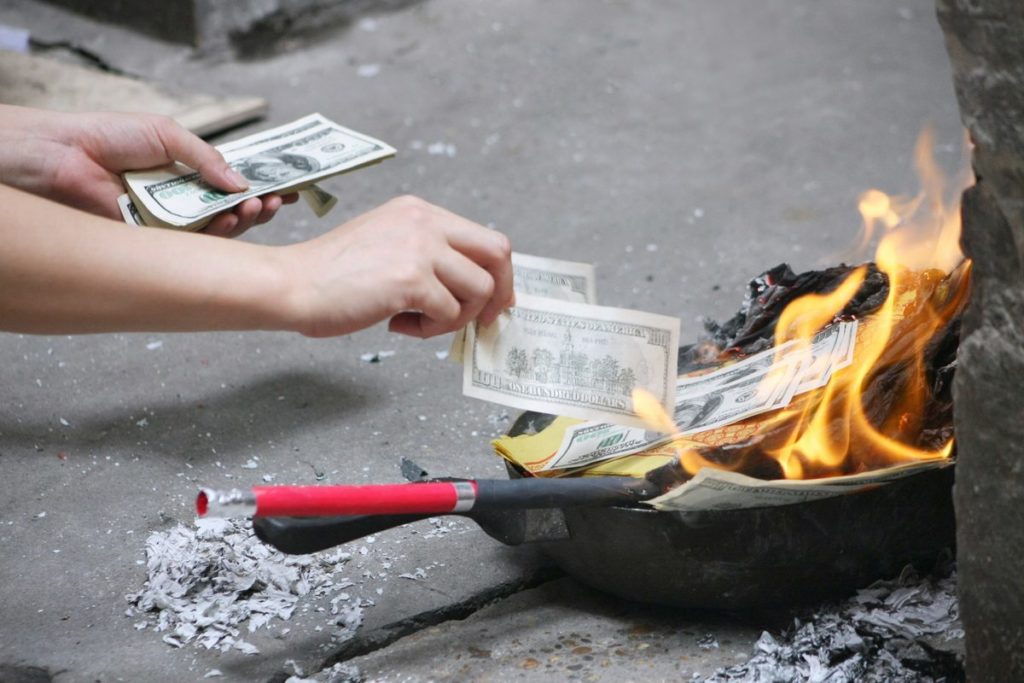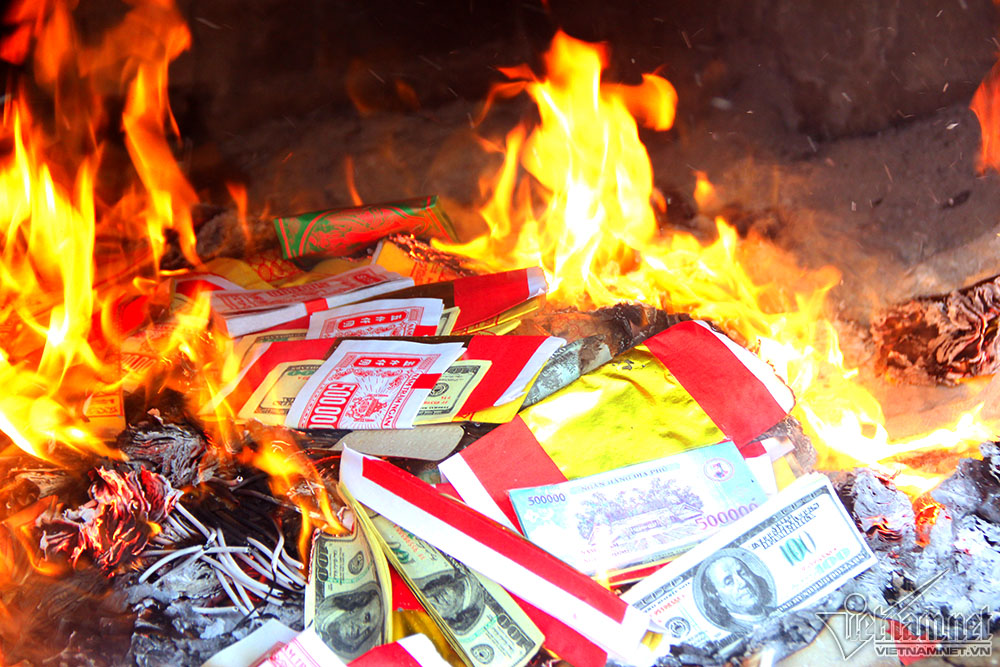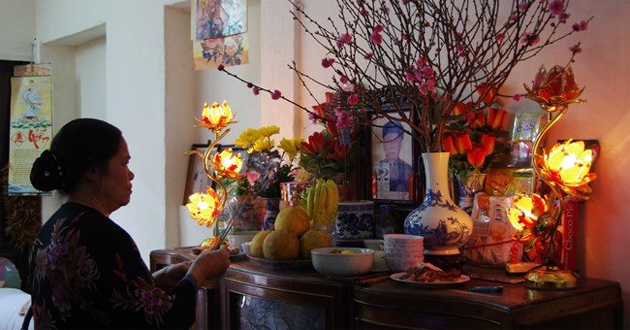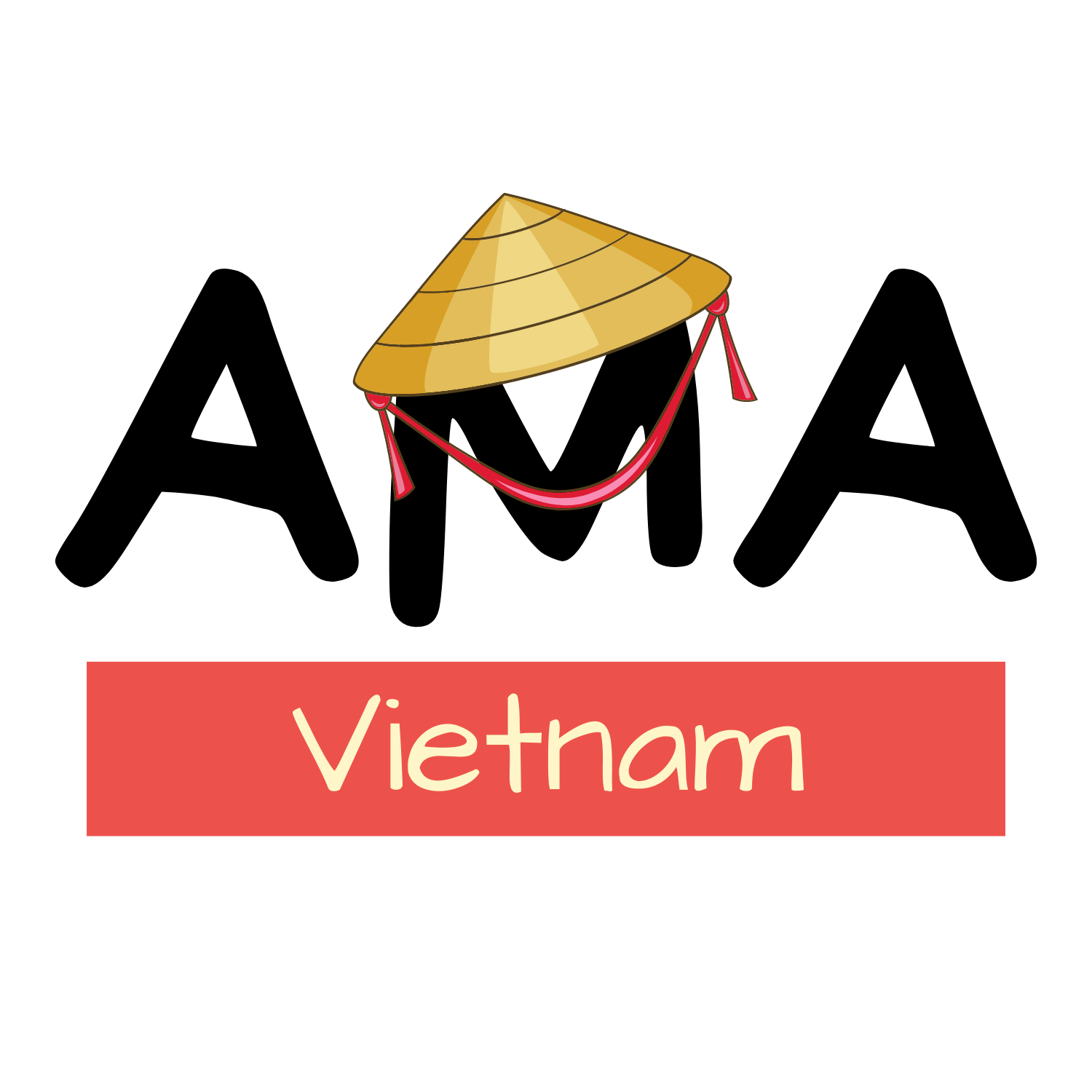I have some international friends who took an exchange program at CFVG (my business school in Vietnam). Spending 6 months studying and living in my country, they saw many unexpected things that they have not seen anywhere before.
One of the strangest things is that fake money being sold at many places, not only Vietnamese Dongs, the local currency, but also US Dollars. They also wonder why Vietnamese people use real money to buy fake money.
From surprising to confusing, they asked me many questions.
If you have ever been in the same situation and wondering what is the truth behind the fake money, fake properties in Vietnam, let’s uncover it together through this article.
What is the fake money used for?

First of all, I would like to confirm that the “fake money” you saw is not really what you could expect, meaning that we don’t use it as actual money. It looks like bank notes or gold or whatever but they are obviously fake. They are basically just pieces of paper, or sometimes made out of very thin wood.
In Vietnamese, we call these fake stuff as Vàng Mã or Hàng Mã or Đồ Cúng. It can be translated as Votive Paper or Votive Paper Offerings. They are used on some special occasions, like funerals or death anniversaries for instance, where they are burned during the ceremony.
That is why votive paper offerings as fake money, fake cars, fake gold, fake clothes, fake houses, have their own privilege to be sold and to be used legally.
Why do the Vietnamese burn votive paper?

According to the beliefs of those who burn votive paper, dead people have a life in another world which we normally call the afterlife. In this afterlife, they will need a house to shelter, a car to travel, a phone to call, money to buy things, a television to watch their favourite movies.
Therefore, the Vietnamese burn votive paper which represents money, gold, clothes, houses, phones, and other necessities of life to transfer them to their deceased relatives in the afterlife.
Burning votive paper offerings is a traditional custom in Vietnam. It is considered as a means of connecting the living and the dead, a way for people to express their reverence towards ancestors and spirits.
In addition, votive paper offerings are normally made out of paper or flammable materials, such as bamboo or thin wood, so that we can send them by burning them easily. I am not sure if we have another way to deliver this stuff to people in the afterlife. Burning is the most common way.
Also, don’t be surprised if you see a Vietnamese who are patient enough to oversee and wait for the votive papers to be completely burnt: it’s a necessary thing to do.
Imagine if you would like to send a car but there are still two wheels that are not burned yet: your ancestors will receive it with those two wheels missing. That could be a funny joke but I’m not sure it’s going to be very useful for them.
When do Vietnamese people burn votive paper?

If we have a birthday and holidays, the dead people also have them but in the afterlife world.
That’s why on the death anniversary and other special occasions such as Tết holiday in Vietnam, 14-15th day in the lunar of July, Vietnamese people will organise small parties gathering family members to remind them about deceased relatives.
In these events, the Vietnamese often prepare some traditional food, flowers, drinks, and votive papers as a gift, putting them all on the altar and sometimes on a table in front of the house, then respectfully bow and whisper to send them a message.
Finally, we put all votive paper offerings on fire where they will be well burned and sent to deceased relatives.
Are there any throwbacks behind this tradition?
Burning votive paper is a part of Vietnamese’s spiritual lives and over time it became a traditional custom in Vietnam from generations to generations.
The message of burning votive papers is beautiful as it’s a spiritual need to remind the living about their ancestors. It also makes them feel connected with the deceased relatives wherever they go.
However, when it comes to actions, burning votive paper offerings has been distorted. Some people, especially in business, tend to overuse this custom for personal desires instead of ancestor veneration like in the old days.
There are some individuals who have a misunderstanding, thinking that the more they send gifts to dead people, the happier these deceased people are. As a result, they expect their deceased relatives to support and help them get what they wish for.
In consequence, they burn a lot of votive papers, leading to many negative impacts.
Smoke and ash are everywhere, making the atmosphere hot and polluted. There have been fires that have caused the loss of people and property due to burning votive papers. A lot of real money is spent to buy votive papers while there are people in real life who really need help.
Should Vietnam abandon this traditional custom?
It’s a complicated subject!
Given negative effects of burning votive paper, many arguments suggest that Vietnam should forbid the presence of votive paper and burning votive offerings.
On the other hand, it seems to be impossible to stop it immediately. When something is already a traditional custom for a long time, it needs time for a change.
In fact, burning votive paper remains till nowadays. However, more and more Vietnamese people aware of negative impacts of this custom. Accordingly, they reduce or stop doing it.
Over to you
So now you know that fake money, fake Iphones, fake houses, fake cars, and other fake things are votive paper offerings for people in the afterlife. I hope that this article answers your wondering from the beginning.
In my point of view, we should limit the burning of votive paper to as low as possible. It’s not easy for us to put an end to it in an instant. However, if something is no longer relevant, it will disappear on its own. Just a matter of time.
In your opinion, do you think we should keep this traditional custom or terminate it? Feel free to share with me your thoughts and don’t hesitate to ask me if you have any questions.
Another article in the Vietnamese culture and traditions series will be published soon. So, stay tuned!
If you would like to stay updated with the latest content, ensure to subscribe to the AMA Vietnam blog today 🙂

2 Responses
surpriseeee, real money buy fake money 🤣🤣
It’s true @Do Diem. So now you know why Vietnamese people do such an “odd thing” like that :))